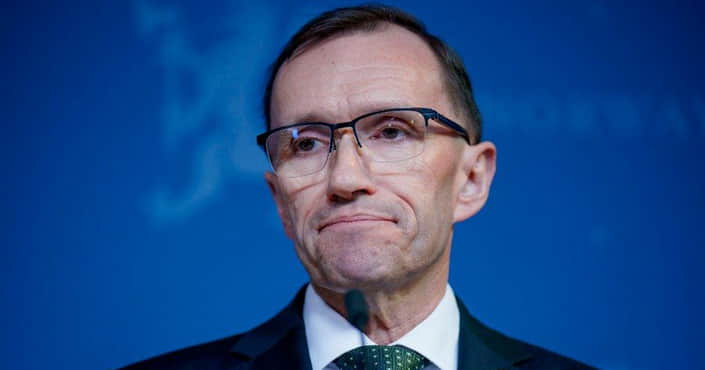Poland allows sanctioned Belarusian timber into EU with forged documents, according to investigation
Journalists discovered documents showing Belarusian companies are using Poland to bypass EU sanctions, falsifying records to pass off Belarusian timber as coming from Kazakhstan.

Poland has emerged as a gateway for Belarusian timber restricted by European Union sanctions to enter the bloc through forged documents disguising the sanctioned goods as exports from Kazakhstan, according to a joint investigation by the Belarusian Investigative Center, Radio Free Europe’s “Schemes” project, and the Polish newspaper Gazeta Wyborcza.
Record imports from timber-poor Kazakhstan
After Russia’s full-scale invasion of Ukraine in February 2022, the EU imposed restrictions on certain Belarusian products, including timber, a significant portion of which was traditionally supplied to Europe. The sanctions disrupted the timber market, with imports from the largely deforested Kazakhstan inexplicably surging to record levels worth nearly €126 million in 2022-2023, most destined for Poland.
Poland’s imports of Kazakhstani timber increased nearly fivefold year-on-year in 2022, from €14 million to nearly €68 million – starkly contrasting with Kazakhstan’s minimal pre-war timber exports to Europe and Belarus’s €1 billion annual European timber trade.
Forged documents facilitate sanctions evasion
Documents obtained by journalists indicate Belarus-based companies are exploiting Poland as an entry point by falsifying shipping records to misrepresent Belarusian timber as originating from Kazakhstan, circumventing EU sanctions.
One January 2023 customs declaration, bearing seemingly counterfeit company stamps and signatures of Kazakhstani officials, certified pine fence posts as exported from Kazakhstan to a Polish recipient company, PLRBL. However, the listed Kazakhstani supplier, Nurr-electro, denied any financial transactions or contracts for such a delivery to PLRBL, calling the documents outright forgeries.
Two independent graphic design experts confirmed the company stamps, signatures, and Kazakhstani finance ministry seal on the shipping documents appeared digitally inserted using photo editing software – strongly suggesting no actual export from Kazakhstan occurred, corroborated by the shipment’s absence from Kazakhstan’s export database.
The hauler, a Belarusian firm “Gallardo,” admitted transporting the timber from Belarus, not Kazakhstan, following documentation provided, unknowingly facilitating the sanctions workaround. The shipment reportedly originated from another Belarusian company, “CO RBL,” which specializes in wood processing and is owned by Oleg Yanovich – also the sole owner of the Polish recipient PLRBL. Yanovich declined to comment on the allegations.
Authorities alerted, response lacking
Although the volume of actual Kazakhstani-origin timber reaching Poland remains undetermined without comprehensive customs data scrutiny, the findings prompted journalists to alert Polish authorities, including the interior, foreign, finance, and border ministries, over potential sanctions violations by PLRBL and its owners.
While Poland’s foreign ministry deflected responsibility and the interior ministry initiated an inquiry without details, the customs service acknowledged lacking capacity to verify all customs declarations – underscoring gaps enabling sanctions circumvention through fraudulent paperwork on a potentially significant scale.
The investigation exposes a regulatory blind spot facilitating Belarus’s workaround of EU restrictions through Poland, exacerbated by falsified shipping documents requiring only rudimentary forgery skills to mask the sanctioned cargo’s true origin and qualify it for access to EU markets.
Poland continues Russian imports
The lack of sanctions against Russian agricultural products and loopholes in EU regulations have allowed Polish haulers to transport goods from Russia, bypassing sanctions against Russia.
With agricultural products alone, the value of Russian and Belarusian exports to Poland reached $173 million in 2023, exceeding the pre-war 2021 figure. Notably, imports of grains and oilseeds, blocked from Ukraine since September 2023, more than doubled.
Polish haulers are able to transport goods from Russia through Belarus into Poland, taking advantage of the EU exception for agricultural products. This loophole in EU regulations allows these goods to enter Poland despite sanctions against Russian agricultural products.
Poland’s paradox: blockading Ukraine trade, continuing Russia imports
For over eleven months, Polish farmers have been protesting against Ukrainian agriculture imports, leading to border blockades and significant economic losses. Despite Poland’s official support for Ukraine in its war with Russia, Polish farmers continue to block Ukrainian trucks, causing billions in annual losses for Ukraine’s customs payments, crucial for its military needs. The protests highlight a stark contrast between Poland’s official stance and the actions of its farmers, who also uncovered Polish trade with Russia during the blockade, raising questions about Poland’s commitment to supporting Ukraine. The blockade has strained relations between Poland and Ukraine, with Ukrainian officials hinting at retaliatory measures, including potentially closing the border. As tensions escalate, Ukrainian officials stress the need for meaningful negotiations with Poland to resolve the blockade and prevent further economic damage to Ukraine.



